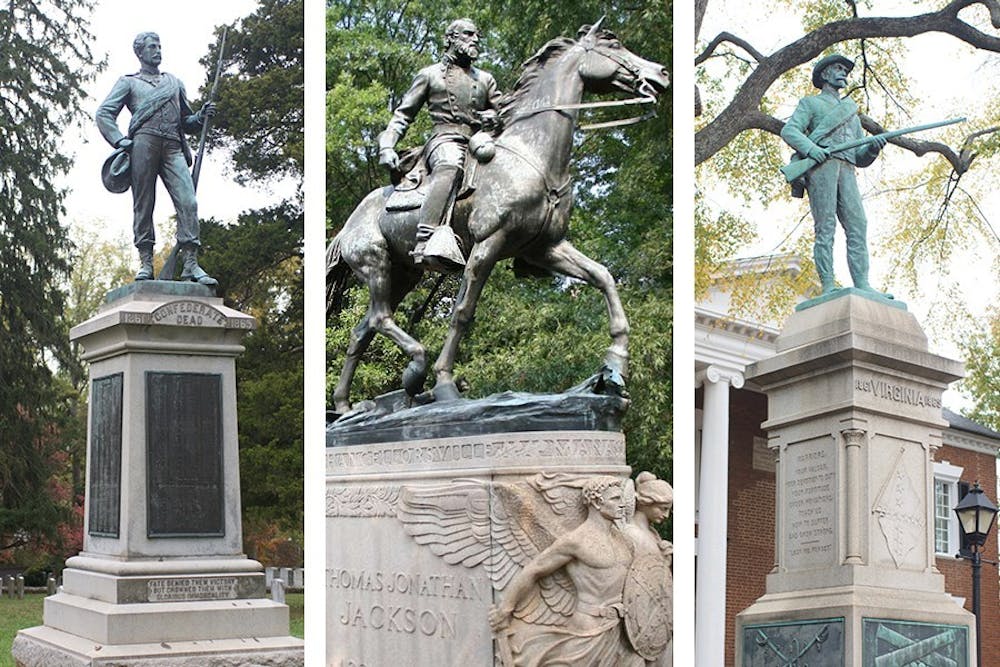Gov. Ralph Northam, D-Va., signed a bill Saturday allowing individual localities to remove, relocate or contextualize Confederate statues and monuments within their communities. Localities can begin using these powers starting July 1.
In 2016, first-year College student Zyahna Bryant — then a student at Charlottesville High School — petitioned Charlottesville City Council to remove the statue of Confederate General Robert E. Lee and to rename Lee Park in Downtown Charlottesville. The following year, Charlottesville City Council voted to remove two statues — one of Robert E. Lee and one of Thomas “Stonewall” Jackson — both Confederate generals.
The decision was quickly met with a lawsuit, which resulted in the Sept. 2019 ruling from Charlottesville Circuit Court Judge Richard E. Moore that the removal of Confederate monuments violated the Dillon Rule — an established doctrine that restricts the power of localities, only allowing them to have the powers specifically granted from the state government.
Despite this ruling, the City still had jurisdiction over the names of Lee and Jackson Park, and voted in 2017 to rename the parks to Emancipation and Justice Park. The parks were again renamed July 2018 to Market Street Park and Court Square Park.
The initial vote to take down the statues also sparked the deadly white supremacist Unite the Right Rally on Aug. 11 and 12, 2017, in which far-right protesters descended on the University and the City of Charlottesville in order under the pretext of preventing the removal of the Robert E. Lee statue.
In a news release, Northam stated that the new laws will “make Virginia more equitable, just, and inclusive.”
Senate Bill 183 and House Bill 1537 effectively overturn Virginia’s prohibition on the removal of Confederate war memorials, and starting July 1, localities may remove, contextualize or relocate monuments as they wish. Although the Senate bill initially required a vote by supermajority to ratify any decision regarding the monuments, the measures Northam signed do not require a supermajority vote for local action. Instead, localities may hold a nonbinding referendum to determine the fate of their communities’ monuments.
“Racial discrimination is rooted in many of the choices we have made about who and what to honor, and in many of the laws that have historically governed this Commonwealth,” Northam said.
In a press release sent out by Take ‘Em Down Cville, the Charlottesville-based affiliate of Monumental Justice Virginia — a group of Virginians advocating for local control of Confederate monuments — Bryant stated her support for this legislation.
“The signing of this landmark legislation is a monumental step in the direction of telling a fuller story of who we are,” Bryant wrote. “These Confederate monuments and other symbols of the Lost Cause should no longer control the narrative. No more odes to white supremacy and oppression.”
In an email to The Cavalier Daily, Delegate Sally Hudson, D-Charlottesville, who co-sponsored the house bill, described the passage of this bill as landmark legislation.
“Communities across the Commonwealth will finally have the freedom to reckon with our public history and decide for ourselves what to celebrate,” Hudson said. “There’s still so much work to be done, but this is a major milestone for all the advocates, activists, educators, and community leaders who elevated this urgent call together.”







